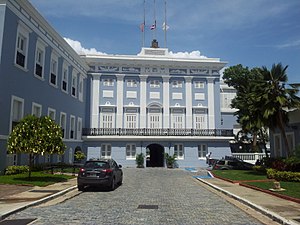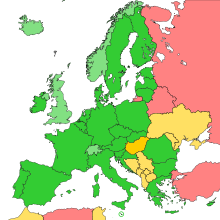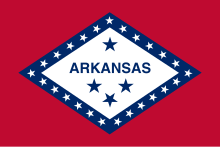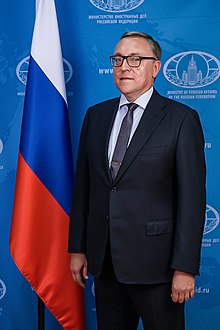
Portal:Politics
| Main | Topics and categories | Tasks and projects |
The Politics portal
Politics (from Ancient Greek πολιτικά (politiká) 'affairs of the cities') is the set of activities that are associated with making decisions in groups, or other forms of power relations among individuals, such as the distribution of status or resources. The branch of social science that studies politics and government is referred to as political science.

Politics may be used positively in the context of a "political solution" which is compromising and non-violent, or descriptively as "the art or science of government", but the word often also carries a negative connotation. The concept has been defined in various ways, and different approaches have fundamentally differing views on whether it should be used extensively or in a limited way, empirically or normatively, and on whether conflict or co-operation is more essential to it.

A variety of methods are deployed in politics, which include promoting one's own political views among people, negotiation with other political subjects, making laws, and exercising internal and external force, including warfare against adversaries. Politics is exercised on a wide range of social levels, from clans and tribes of traditional societies, through modern local governments, companies and institutions up to sovereign states, to the international level.

In modern nation states, people often form political parties to represent their ideas. Members of a party often agree to take the same position on many issues and agree to support the same changes to law and the same leaders. An election is usually a competition between different parties.

A political system is a framework which defines acceptable political methods within a society. The history of political thought can be traced back to early antiquity, with seminal works such as Plato's Republic, Aristotle's Politics, Confucius's political manuscripts and Chanakya's Arthashastra. (Full article...)

Selected article
The Convention of 1832 was the first political gathering of colonists in Mexican Texas. Delegates sought reforms from the Mexican government and hoped to quell the widespread belief that settlers in Texas wished to secede from Mexico. The convention was the first of a series of unsuccessful attempts at political negotiation that eventually led to the Texas Revolution. On October 1, 1832, 55 political delegates met at San Felipe de Austin to petition for changes in the governance of Texas. Notably absent was any representation from San Antonio de Béxar, where many of the native Mexican settlers (Tejanos) lived. The delegates elected Stephen F. Austin (pictured), a highly respected immigrant, as president of the convention. Delegates passed a series of resolutions requesting, among other things, a repeal of the immigration restrictions, a three-year exclusion from custom duties enforcement, permission to form an armed militia and independent statehood. They also voted themselves the power to call future conventions. Before the petition could be delivered to Mexico City, the political chief of Texas, Ramón Músquiz, ruled that the convention was illegal and annulled the resolutions. In a compromise, the ayuntamiento (city council) of San Antonio de Béxar drafted a new petition with similar language to the convention resolutions and submitted it through proper legal channels. Músquiz forwarded the new document to the Mexican Congress. (more...)

Featured picture
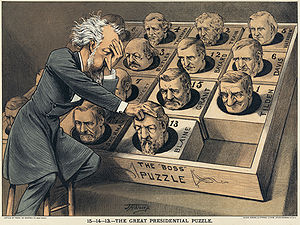
An 1880 depicts Senator Roscoe Conkling over a "presidential puzzle" consisting of some of the potential Republican nominees as pieces of a newly invented sliding puzzle. Conkling held significant influence over the party during the 1880 Republican National Convention and attempted to use that to nominate Ulysses S. Grant, only to lose out to "dark horse" candidate James A. Garfield.

Selected quote
Selected biography
George Walker Bush (born July 6, 1946) is an American politician who served as the 43rd President of the United States from 2001 to 2009. Before that he was the 46th Governor of Texas, serving from 1995 to 2000. In a close and controversial election, Bush was elected President in 2000 as the Republican candidate, defeating Vice President Al Gore in the Electoral College. A series of terrorist attacks occurred eight months into Bush's first term as president on September 11, 2001. In response, Bush announced a global War on Terror, ordered an invasion of Afghanistan that same year and an invasion of Iraq in 2003. In addition to national security issues, Bush promoted policies on the economy, health care, education, and social security reform. Bush successfully ran for re-election against Democratic Senator John Kerry in 2004, in another relatively close election. He was a highly controversial figure internationally, with public protests occurring even during visits to close allies, such as the United Kingdom.

Did you know (auto-generated) -

- ... that after criticizing the political patronage system, John Silva Meehan was hired as Librarian of Congress through "purely an act of political patronage"?
- ... that a political action committee paid $132,000 to former First Lady Melania Trump's fashion stylist for strategy consulting?
- ... that Americans received nearly 15 billion political text messages in 2022?
- ... that Dmitri Shostakovich denounced his own Tahiti Trot, an orchestral arrangement of "Tea for Two", as a political blunder?
- ... that New Jersey politics expert Nick Acocella hosted Pasta & Politics, a television show where he would make pasta with various politicians including Thomas Kean, Cory Booker, and Chris Christie?
- ... that Crossing a Line compares Palestinian political expression on either side of the Green Line between Israel and the occupied Palestinian territories?
More did you know...
- ...that anarchism once was the strongest current in the Cuban labor movement?
- ...that "Tippecanoe and Tyler too" (campaign banner pictured) was called the "Marseillaise" of the 1840 United States presidential election?
- ...that the events of Polish October together with Hungarian November shook the Eastern Bloc in 1956 and set the course for the Revolutions of 1989?
- ...that the current constitution of Nicaragua, the ninth in the country's history, was the final step in the institutionalization of the Sandinista regime?
- ...that depending on a time and place, the same social movement may be revolutionary or not?
- ...that tiao-kuai is the quasi-federal administration system in China?
In this month
- January 1, 1912 – The Republic of China was proclaimed.
- January 4, 2011 – Tunisian street vendor Mohamed Bouazizi dies after setting himself on fire a month earlier, sparking anti-government protests in Tunisia and later other Arab nations. These protests become known collectively as the Arab Spring.
- January 5, 1912 – Vladimir Lenin and the Bolshevik Party break away from the rest of the Russian Social Democratic Labour Party.
- January 12, 1729 – Edmund Burke was born, considered to be the philosophical founder of modern conservatism.
- January 25, 2006 – Hamas wins a victory in the Palestinian legislative election, taking 76 of the 132 seats.
News and Current events
- August 11: 4 local government areas in New South Wales, Australia locked down after COVID-19 case
- August 11: Australia: AstraZeneca vaccine access expanded by Victorian government
- August 1: Australia: Victorian lockdown lifted
- July 29: Tunisia's president dismisses prime minister, suspends parliament
- July 25: Australia: Wikinews interviews Reg Kidd, mayor of the City of Orange, about COVID-19 lockdown and local government
- July 23: South Australia enters week-long lockdown to contain COVID-19 Delta variant spread
- July 21: Technological University Dublin senior lecturer Dr Lorcan Sirr speaks to Wikinews on housing market in Ireland
- July 21: Three rural councils in New South Wales, Australia enter 7-day lockdown
- July 21: Australia: Victoria lockdown extended by a week with 85 active cases recorded
- July 15: California governor signs new state budget, eligible Californians to get stimulus payments
Topics and categories
General images
Related portals
Associated Wikimedia
The following Wikimedia Foundation sister projects provide more on this subject:

-
Commons
Free media repository -
Wikibooks
Free textbooks and manuals -
Wikidata
Free knowledge base -
Wikinews
Free-content news -
Wikiquote
Collection of quotations -
Wikisource
Free-content library -
Wikiversity
Free learning tools -
Wiktionary
Dictionary and thesaurus
Sources
More portals
See what we do next...
OR
By submitting your email or phone number, you're giving mschf permission to send you email and/or recurring marketing texts. Data rates may apply. Text stop to cancel, help for help.
Success: You're subscribed now !





